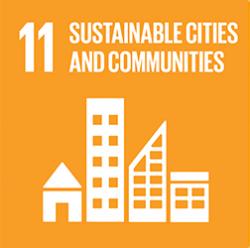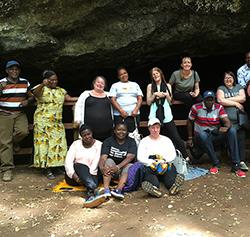Two teams of housing activists, academics and practitioners from Gothenburg, Sweden, and Manchester and Liverpool in the UK, have been taking part in a mutual learning exchange this year. Organised by the University of Sheffield and Mistra Urban Futures, here the UK participants reflect on their visit and what ideas they plan to take back with them.
The exchange programme is about:
The aim of our exchange was to swap ideas and experiences of how neighbourhoods can be transformed by communities in the two countries, without falling into the traps of gentrification and top-down property-led regeneration programmes. In Manchester and Liverpool we visited grassroots co-operatives and community land trusts (CLTs) in inner-city areas and heard from people establishing a cohousing group. For our return to Gothenburg, we visited central areas of the city that have been dealing with gentrification and ‘million homes’ projects in the suburbs. It was inspiring to talk to people involved in impressive projects, including Tenants Union members setting up community gardens and anti-racism activists in the Panthers for the Restoration of the Suburbs.
Who participated and why
Hannah Berry and Richard Goulding are involved in the campaigning group Greater Manchester Housing Action and its Housing Futures research partnership with the University of Sheffield. Housing Futures explores the potential for community-led housing to meet the needs of people on low incomes and released a report late last year. Other members of our team included Britt Jürgensen, an artist and organiser with HomeBaked, a CLT and co-operative bakery in Anfield, Liverpool, and Dave Carter and Diana Martin, who are both involved in setting up a cohousing project in Manchester. In Gothenburg we worked with academic researchers Sara Eliasson and Håkan Thörn; Tenants Union organisers and activists Agnes Gerinder and Mahmod El Haj; and Hilda Wenander, a development manager for the municipal housing company Bostadsbolaget.
What have you learned from the exchange?
It was striking to see issues that are also present in the UK. Gentrification pressure from developers, or commercialisation and rising housing costs, are very familiar to most of us from Manchester. At the same time, these are taking place in a very different context, where the welfare state has been kept much more intact. We saw how this mitigates some of the worst aspects of our housing crisis, in the sheer scale of homelessness for example, or people having to churn through the private rented sector.
It was fascinating to hear about different aspects of the city from a range of perspectives – from the critical ethnographer/photographer who had documented the impacts and false narratives of neighbourhood regeneration, to the Christian NGO working with the private sector to improve educational outcomes in an ethnically diverse suburb, to the promotional spin of a municipal housing company which didn’t quite survive contact with the realities we witnessed on our walkabout.
Learning about the post-industrial evolution of Gothenburg threw light on some of the trends that confront us in Manchester and Liverpool too: relentless pursuit of economic growth and foreign investment; projection of a global status based on sports, events and the knowledge economy; the casual demolition of physical heritage rather than conservation and renovation; the recuperation of social and artistic movements for marketing purposes; and a growing social divide between a dynamic centre and peripheral estates.
What lessons do you plan to take back with you
It was impressive hearing from the ‘Beyond Sustainability’ architecture and planning programme at Chalmers on their participatory work, especially the self-reflection about the power relations between communities and other actors involved in social change. Their methodology is something for us to reflect on in the future. The tensions within a mass organisation such as the Tenants Union between working with municipal housing companies while also challenging issues on behalf of their members are also important to consider in terms of what long-term tenant organising might face in the UK. The typology and information prepared for us on co-housing in Sweden will usefully inform discussions about models and definitions here. And for us as activists, the story of the Truckstop Alaska collective, especially their refusal to commercialise to suit the gentrifying instincts of the city authorities, is something our friends back home will be inspired to hear.
See video from the visit in Gothenburg and interviews
Photo by: Annika Källvik








